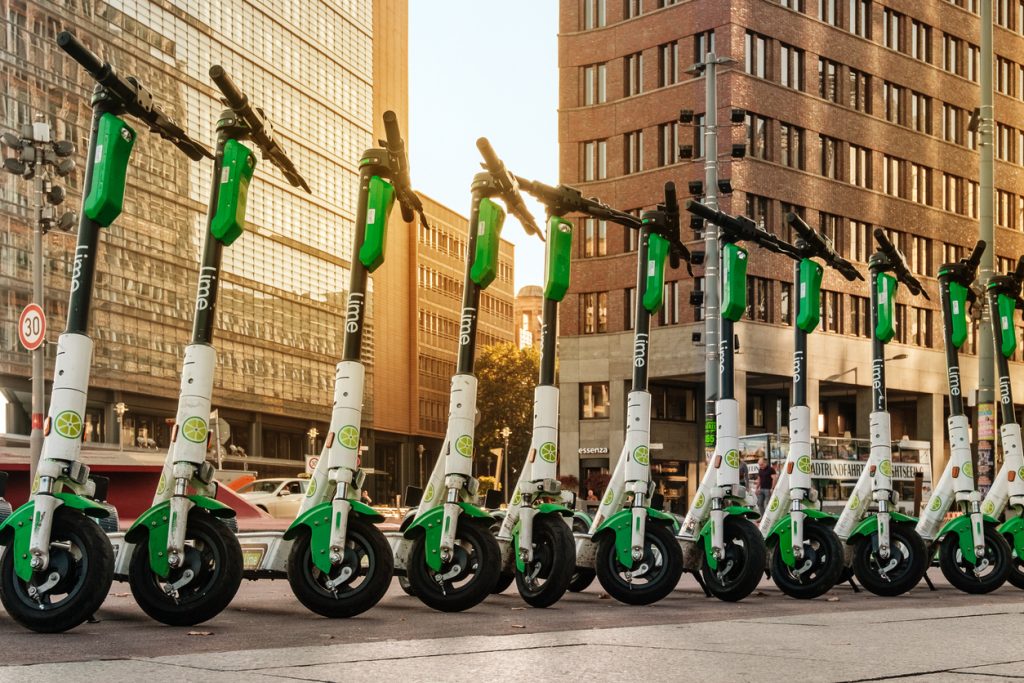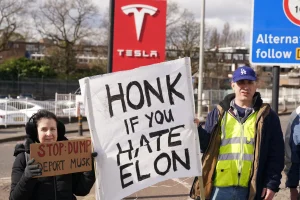Trevor Sterling, Partner and Head of Major Trauma at Moore Barlow, examines the state of current legislation surrounding e-scooters and why it is inadequate.
With the accelerated rollout of rental e-scooters across the UK, I fear the lack of scrutiny on the legalisation, which allows for the use of these vehicles on our roads, is an accident waiting to happen. As an advocate of e-scooters, I would truly like to see these vehicles successfully trialled, but this cannot come at the cost of rider safety. The Government must take note of the current holes in the regulation of e-scooters and take action to legislate and educate riders.
Until July 2020, e-scooters were illegal to ride on public roads, cycle lanes and pavements in the UK and could only be used on private land. E-scooters are classified as Personal Light Electric Vehicles (PLEVs), and therefore they are subject to the same legal requirements as motor vehicles. This has meant that until recently e-scooters did not fulfil the legal requirements enabling them to be driven on roads. For example, it is difficult for them to have rear red lights, signalling ability and a number plate. In recognition of this, the Government is now considering changing the current legal framework to allow for this emerging mode of transport on British roads.
Fuelled by the vehicle’s green credentials and successful adoption in many European cities, the Government’s original plan was to trial rental e-scooters in four ‘future transport zones’. However, the coronavirus has expedited this. With the Government urging people to avoid public transport and look at alternative ways to travel during the pandemic, the trial was brought forward to 4 July and rolled out UK-wide. This move has brought into sharp focus the current flaws with the current e-scooter trial regulations and significantly widens the potential for harm.
[ymal]
To begin with, the compulsory personal safety measures for riders are currently non-existent. The Government has amended the Motor Cycle (Protective Helmets) Regulations 1998 to remove the requirement for e-scooter riders to wear a helmet. There are also no compulsory measures to help improve the visibility of e-scooters travelling in darkness, such as headlights or reflective clothing. Safety measures such as these would protect riders and other road users. Without these measures included in the current regulation, there is a significant increase in the likelihood of serious injury occurring.
There is also the issue of how e-scooters can be adequately policed. The current trial states that scooters must have a maximum speed of 15.5mph. However, not all scooters are equipped with a speedometer and the nature of the vehicle means that a rider heading downhill would be able to significantly exceed this limit. Concerningly, with the mass adoption of e-scooters we have already started to see people using their personal e-scooters on the roads. It will be vastly difficult for law enforcement to tell whether an e-scooter is part of the trial or personally bought and having completely unregulated e-scooters on our roads will be dangerous for everyone involved.
There is no consistent online legislation for purchasing e-scooters, you can buy one internationally and to a range of specifications. When purchasing, people tend to focus on price point and speed. They will not look at features like the standard of the braking system, or whether it works in the rain. Most e-scooters aimed at consumers are built with existing regulations in mind, which would typically be a leisurely ride around private land on a summer's day. They are not built with the daily commute in mind and are not currently safe enough to cope with these new demands. All of these issues combined will create complex legal problems as the use of e-scooters – both rentals and privately owned – rapidly increases across the UK in the coming months.
In my capacity as Head of Major Trauma at Moore Barlow, I am concerned that we will see a rise in single victim accidents in relation to e-scooters. With more privately owned e-scooters on the roads, no mandatory personal safety requirements and the trial virtually unpoliceable, these are far from ideal conditions for individuals to be riding in. When accidents do occur they will be tragic and the fault of the current uncertain regulation and discrepancies in rules around e-scooters. This will lead to crash victims having to pay for years of expensive rehabilitation support.
When accidents do occur they will be tragic and the fault of the current uncertain regulation and discrepancies in rules around e-scooters.
With many local authorities still approving their local e-scooter schemes there is still time for Government to act. I would propose that they immediately convene a working group with scooter manufacturers, experts in major trauma from the legal profession and rental firms, to design laws with a stronger focus on safety. Until these laws are implemented, there needs to be an immediate educational campaign on road safety and the provision of guidance on the training riders should undertake before taking to the roads.
E-scooters have the potential to revolutionise the way many of us travel and pave the way for a greener future; but the use of this brilliant technology must not be hampered by avoidable tragedy and become the focus of legal battles for years to come. It is promising to see the Government act quickly on a promising initiative, but this must be matched by proper scrutiny of regulation and result in laws that keep us all safe.





















